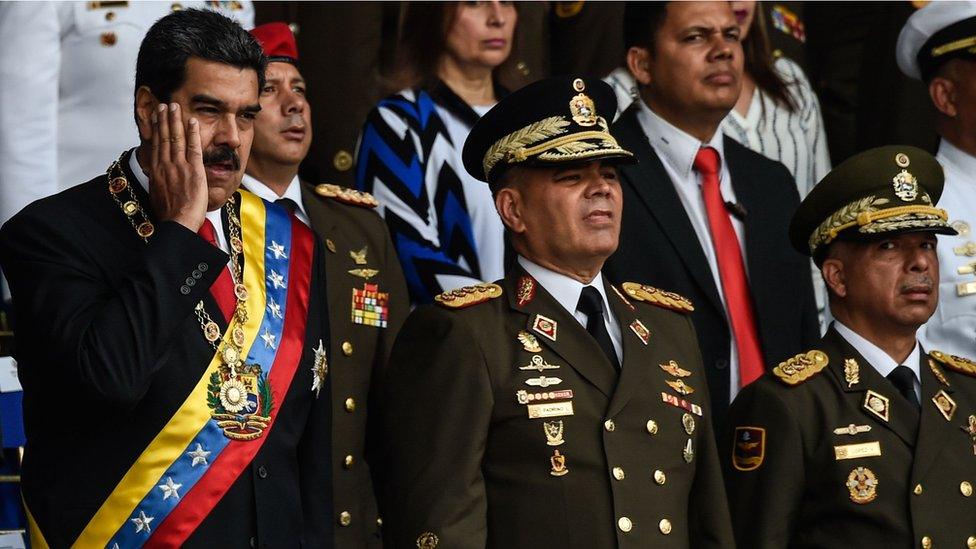Venezuela's Maduro 'optimistic' as crisis talks resume
- Published
Venezuela crisis: The four countries interested in the presidential battle
Venezuelan President Nicolás Maduro said he was "optimistic" as talks between the government and the opposition to resolve the country's political crisis resumed on Monday.
The two sides have been engaged in a bitter power struggle since January and preliminary talks held in May in Oslo petered out without an agreement.
Mr Maduro said a six-point agenda was being discussed at the meeting which is being hosted by Barbados.
He did not give further details.
What is known about the talks?
The Norwegian foreign ministry is again acting as a mediator, as it did at the previous meeting in Oslo, but has so far onlycommented to confirm the meeting was taking place.
Mr Maduro revealed that Monday's meeting lasted five hours. He also said he thought "a path to peace" could be found.
Juan Guaidó, the head of the opposition-controlled National Assembly, laid out the opposition's aim on Twitter on Sunday. The statement [in Spanish], external said the goal was to "negotiate a way out from the dictatorship".
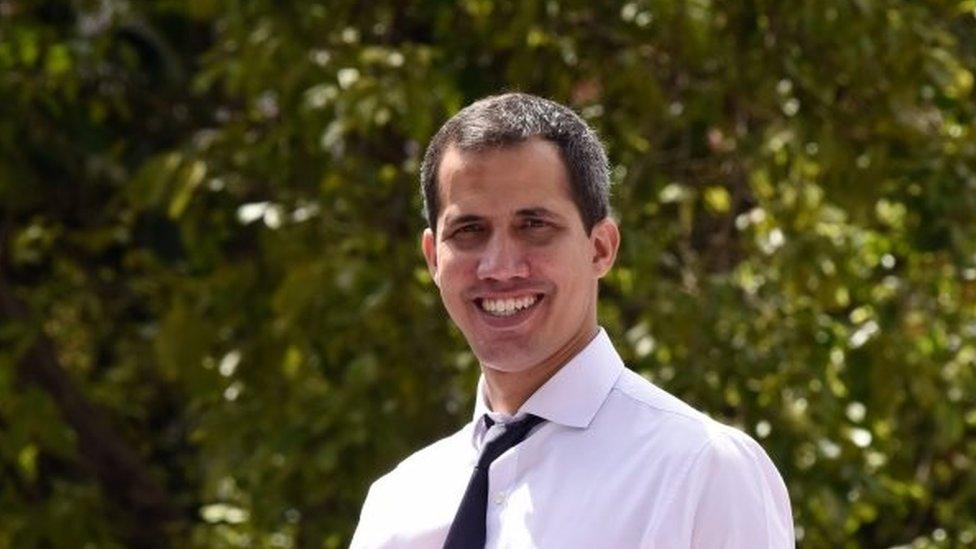
Juan Guaidó wants President Maduro to cede power
The roadmap the opposition proposes consists of three points:
an end to the "usurpation of power" by the government of President Nicolás Maduro
a transitional government
free elections monitored by international observers
What's the background?
Mr Guaidó and President Maduro have been at loggerheads since January, when the former invoked the constitution and declared himself interim president, arguing that the elections which had returned Mr Maduro to power for a second term in 2018 had not been free and fair.
Since then, more than 50 countries, including the United States and most nations in Latin America, have recognised Mr Guaidó as Venezuela's legitimate leader.
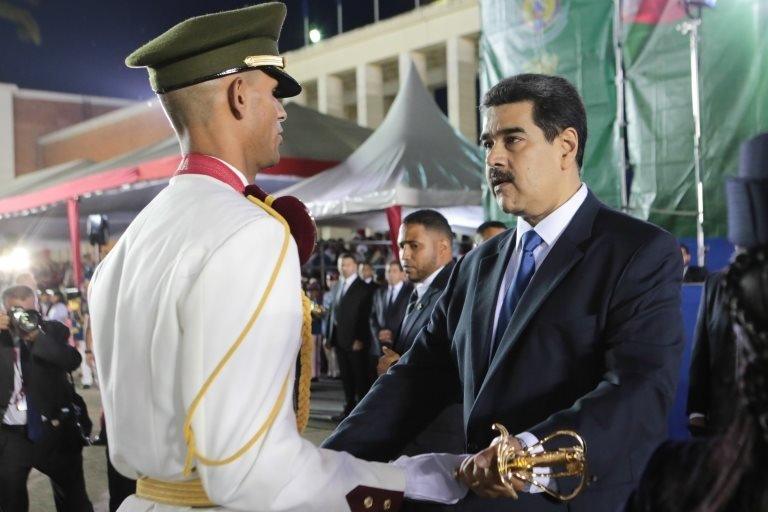
The armed forces remain loyal to President Maduro
But Venezuela's military - a powerful force in the country - and influential allies such as China and Russia have stuck by Mr Maduro.
An attempt by Mr Guaidó to get the military to switch allegiance to him failed, and the country remains in limbo with both men claiming to be the legitimate president.
Meanwhile, a severe economic crisis has exacerbated and shortages of food and medicines have grown even more acute. United Nations figures suggest four million people have fled the country since 2015.
The government blames the shortages on US sanctions but the opposition says they are down to years of mismanagement.
Why are the talks controversial?
Just a week ago Mr Guaidó ruled out a return to negotiations, citing as a reason the death in custody of an army captain whose body showed signs of torture.
Mr Guaidó has not said why his stance has changed. Some in the opposition say the talks are a ruse by the government to buy itself more time in power.
Previous negotiations have broken down without an agreement and some in the opposition say the government's crackdown on rival politicians - with more than a dozen opposition lawmakers being stripped of their parliamentary immunity and others being detained - shows President Maduro has no real interest in negotiating.
A United Nations report released on Friday, external said the Venezuelan government was using a strategy of instilling fear in its population to retain power. The Venezuelan government responded by saying the UN report was one-sided and biased.
- Published5 July 2019
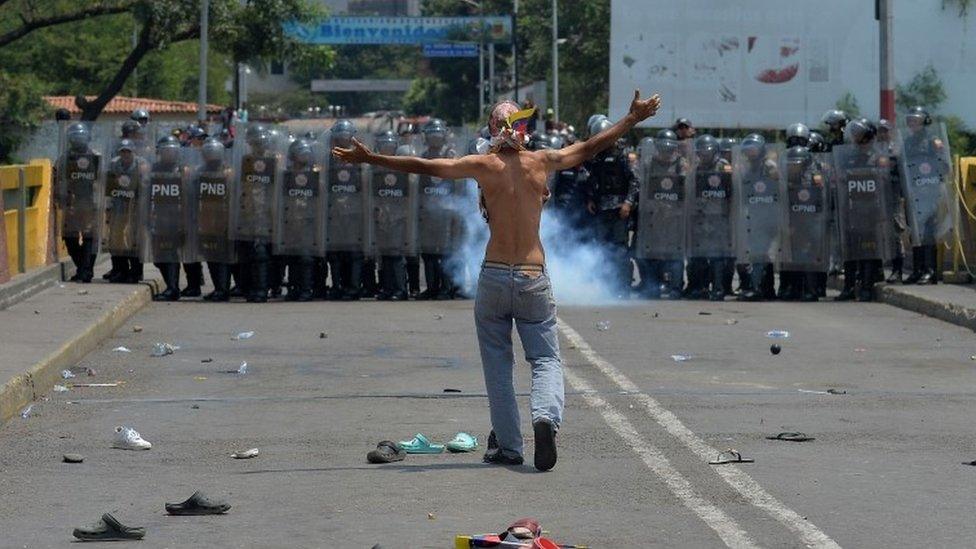
- Published1 July 2019
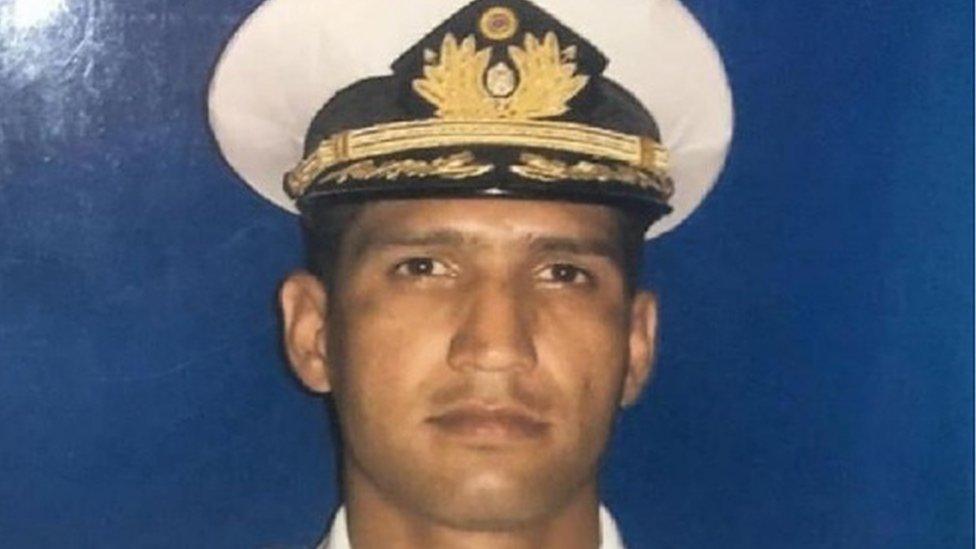
- Published27 June 2019
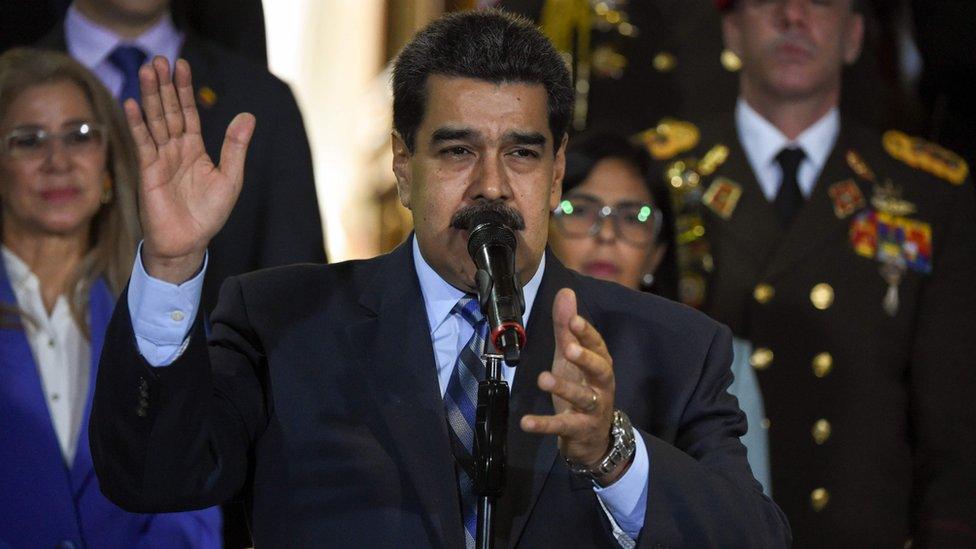
- Published24 June 2019
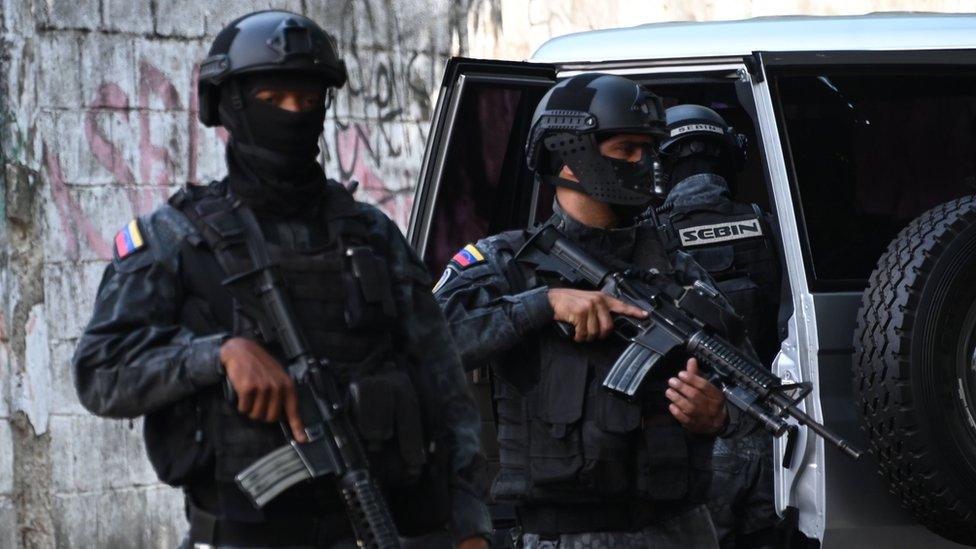
- Published8 August 2018
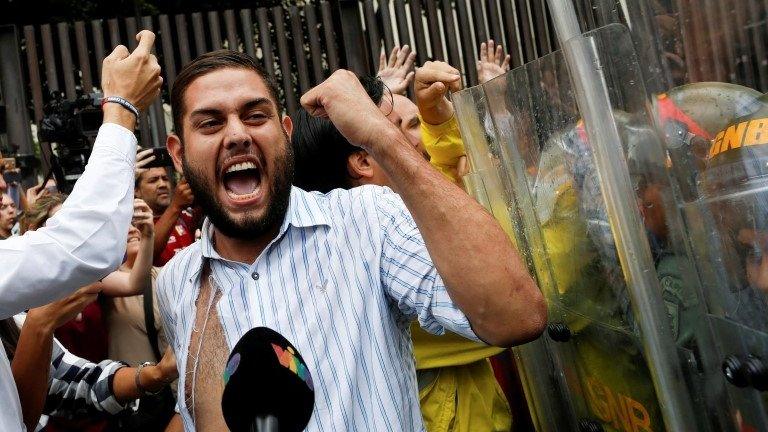
- Published30 May 2019
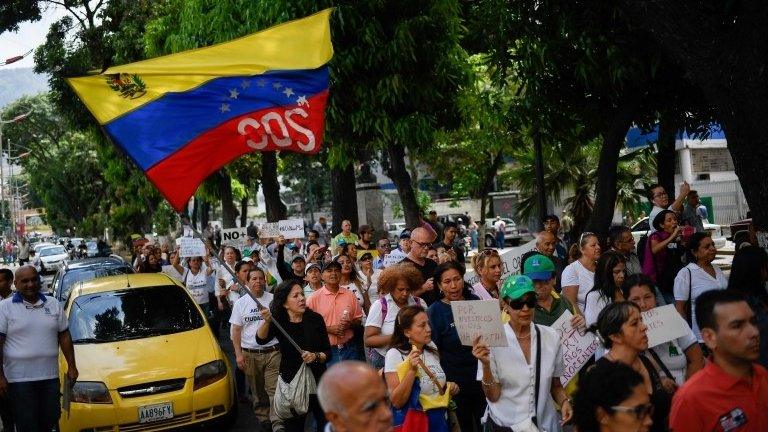
- Published5 August 2018
